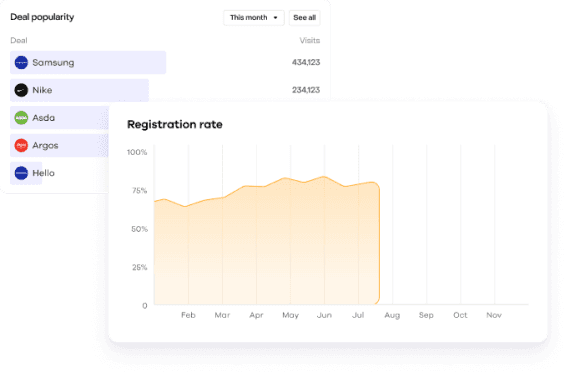
Things have changed around here
We've rebranded from Collective Benefits to Onsi. This content is from before our rebrand so you may see mention of our old name.
The European Commission (EC) has proposed important new rights for the growing number of people who work through digital platforms such as Uber and Deliveroo to allow them to understand, and shape, the algorithms that affect their experiences at work.
I have argued that these proposals offer the prospect of a double-benefit. If implemented well, they offer platform economy workers the opportunity to feel more control and autonomy over key aspects of their work, such as how tasks are allocated, or pay rates are set. This would be good for their well-being and satisfaction at work - and so for platform metrics such as retention.
However, I am sceptical that the specific rights set out in the draft directive will achieve all that they could. For example, the directive requires a document to be provided to a worker on their first working day outlining the algorithms in use and the parameters they consider. Will such a document - no matter how “clear and plain the language – be read?
It’s sensible for platforms to do more than this. Here are three approaches which I think are promising:
Provide effective teaching and learning
Many of the positive impacts from the proposals around algorithmic management will come from changes in what workers on platforms know, understand and are able to do in relation to the algorithms that affect their work.
For example -
Understanding what algorithms are
Knowing what algorithms are in use, and what they decide
Understanding what parameters are considered when tasks are allocated - for example, historical customer ratings, or physical location
Knowing how to contest an algorithmic decision
Seen like this, what we have is a set of learning outcomes that are most likely delivered through explanation, examples, discussion and application. That is, through effective teaching and learning experiences such as here or here.
Expose data and actions to human decision making
An eloquent blog post by technology scholar Rachael Coldicutt describes the need to move away from seamless digital experiences which always work like magic. At least some of the time, we need to expose the points where choices could be made by machines to human decision making. In this way, “tangible entry points for understanding” are provided which enable data, algorithms and decisions to be made legible.
For example, when the Citymapper app knows that you have changed your location, rather than seamlessly act, it requires you to consent to switch. It is fairly easy to imagine how this could be applied to work in the Platform economy - for instance, exposing the reasons for a surge in fees in a particular area and asking workers if they would be willing to accept jobs from there.
Enable exploration and interrogation
Ways are being designed to show how even very opaque technologies such as machine learning arrive at their decisions in a way that is intelligible to non-programmers. For example, through counterfactuals that make visible the parameters that need to be changed, and by how much, in order to change the prediction of a model.
Similarly, IF provides four design patterns for understanding decisions. One of them, Decision Testing, allows people to explore how different inputs affect decision making and is a “low-friction way to help users understand more about how automated decisions are made that doesn’t require lots of previous knowledge.”
The EC Directive allows for workers, or their representatives, to be involved in key changes and decisions when it comes to the use of algorithms. Incorporating tools such as these in those discussions would make them richer and more informed.
In sum: a shift from input to outcome
A right to be given a piece of paper is not much use by itself. When it comes to algorithmic management, what you also want is a right that will lead to increased knowledge, know-how and feelings of control.
To achieve this requires a shift in perspective from input to outcome and the use of creative ways of learning, asking, consenting and interrogating. In this way, platforms will be able to gain a competitive edge by doing more than the EC requires.
Want to learn more about the recent EC proposals and what they mean for organisations in the platform economy? Sign up for our latest webinar here.
Members
Company
Onsi is a UK and EU insurance intermediary. Onsi is a trading name of Collective Society Ltd, Collective Denmark ApS (Onsi Denmark ApS) and Collective Netherlands B.V., who are authorised and regulated by the UK Financial Conduct Authority (No. 923788), the Danish Financial Services Authority (No. 42352985), and the Netherlands Authority for Financial Markets (No. 12049041), respectively. You can check this by visiting the UK Financial Services Register, the Danish Financial Services Register, and the Netherlands Financial Services Register.
Copyright © 2024 Collective Society Ltd, All rights reserved.




